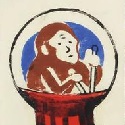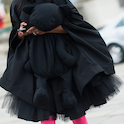What are you reading today/book club
Re: What are you reading today/book club
I just started Kafka on the Shore, so far I'm really enjoying it. I haven't really disliked any of the Murakami i've read though. Recently finished How to Win Friends and Influence People and The Defining Decade.
- 2
-

neon - Posts: 15
- Joined: Fri Oct 04, 2013 12:31 am
- Reputation: 46
Re: What are you reading today/book club
I finished that Pynchon book and have sat on it long enough to feel like I can give a decent review.
First, this is not Gravity's Rainbow or Against the Day, this is more like Inherent Vice with a bit of Crying of Lot 49. The fact that I can describe it like that is a little bit boring, but it has its own charms. It's the first time Pynchon has stepped into the 21st Century so really the first time he's written about something I have firsthand experience with, but the cultural references and the terminally un-cool cool things (a character collects beanie babies as an investment opportunity) seems like a riff on William Gibson's cutting edge cool: by making everything dated and uncool, you get to laugh at how lame being cool is, like finding a bar with Zima still on tap or goofy handheld devices dedicated to sending instant messages. Cyberspace is a really poorly imagined thing here and very anachronistic, and given Pynchon's ability to pick his words I think this is more of a 'ha-ha, this shit won't ever happen' more than sloppy writing. This is the big payoff for the first half of the book and it kind of slips away for the second half, where the theme falls back onto standard Pynchonian tropes of corporate-government fuzziness, paranoia and scheming fuckers pulling a fast one on everyone with nobody really having any ability to do anything about it.
The plot, par for the course, is completely inconclusive and the payoff, after world-bending stakes being (possibly) put on the September 11th, is really very personal and low level. There are fewer digressions from the main story, though, so when a loose end gets tied off it seems like a bit of a let-down. As I write this, though, I'm coming to terms with the fact that really no character has much to do with the plot, not even the main character. It's mostly stuff that happens and people are there when it does. I can't say if this is the next step of paranoia or not, but it's at least a way to approach terrible shit happening.
I wouldn't recommend it as Babby's First Pynchon because it's...ok. The themes that Pynchon repeats are only present if you're looking for them and this book would be a terrible introduction to them, because it's not quite hammered into you the way it is with Gravity's Rainbow's length. If you're already on board, though, go ahead and read away, it's fun.
I'm now reading the The Secret Architecture of Our Nation's Capital: The Masons and the Building of Washington, D.C. by David Ovason, which is shockingly well researched and historically accurate for what amounts to "The angle of Pennsylvania Avenue between the Capitol and the White House relative to the mall is the same as Venus's waning phase on the date the corner stones were set to build the city! Very Propitious!" It's fun, too.
First, this is not Gravity's Rainbow or Against the Day, this is more like Inherent Vice with a bit of Crying of Lot 49. The fact that I can describe it like that is a little bit boring, but it has its own charms. It's the first time Pynchon has stepped into the 21st Century so really the first time he's written about something I have firsthand experience with, but the cultural references and the terminally un-cool cool things (a character collects beanie babies as an investment opportunity) seems like a riff on William Gibson's cutting edge cool: by making everything dated and uncool, you get to laugh at how lame being cool is, like finding a bar with Zima still on tap or goofy handheld devices dedicated to sending instant messages. Cyberspace is a really poorly imagined thing here and very anachronistic, and given Pynchon's ability to pick his words I think this is more of a 'ha-ha, this shit won't ever happen' more than sloppy writing. This is the big payoff for the first half of the book and it kind of slips away for the second half, where the theme falls back onto standard Pynchonian tropes of corporate-government fuzziness, paranoia and scheming fuckers pulling a fast one on everyone with nobody really having any ability to do anything about it.
The plot, par for the course, is completely inconclusive and the payoff, after world-bending stakes being (possibly) put on the September 11th, is really very personal and low level. There are fewer digressions from the main story, though, so when a loose end gets tied off it seems like a bit of a let-down. As I write this, though, I'm coming to terms with the fact that really no character has much to do with the plot, not even the main character. It's mostly stuff that happens and people are there when it does. I can't say if this is the next step of paranoia or not, but it's at least a way to approach terrible shit happening.
I wouldn't recommend it as Babby's First Pynchon because it's...ok. The themes that Pynchon repeats are only present if you're looking for them and this book would be a terrible introduction to them, because it's not quite hammered into you the way it is with Gravity's Rainbow's length. If you're already on board, though, go ahead and read away, it's fun.
I'm now reading the The Secret Architecture of Our Nation's Capital: The Masons and the Building of Washington, D.C. by David Ovason, which is shockingly well researched and historically accurate for what amounts to "The angle of Pennsylvania Avenue between the Capitol and the White House relative to the mall is the same as Venus's waning phase on the date the corner stones were set to build the city! Very Propitious!" It's fun, too.
- 2

-

odradek - Posts: 993
- Joined: Fri Aug 02, 2013 4:53 pm
- Reputation: 6056
Re: What are you reading today/book club
I've started reading against the day more times than any other book
- 0

-

bels - Yung Winona
- Posts: 5087
- Joined: Thu Jul 11, 2013 2:43 pm
- Reputation: 18872
Re: What are you reading today/book club
Finished a biography of Tolstoy's wife. Holy shit. Fuck Tostoy.
I enjoy his writing and can separate the person from his works, but I find it ironic that someone who's so perceptive of human nature in his own writing can be so blind to the hypocrisies of his own life. That said, the biography was written to counteract Cherchov's accounts of Tolstoy's relationship with his wife and thus not entirely unbiased—although it drew extensively from correspondences between the two Tolstoys, their diaries and their children's writings. I sort of feel like both Tolstoys lived their lives feeling like the martyrs in their marriage, although I'm more more inclined to be sympathetic to Sophia.
Either way, Russians are crazy.
I enjoy his writing and can separate the person from his works, but I find it ironic that someone who's so perceptive of human nature in his own writing can be so blind to the hypocrisies of his own life. That said, the biography was written to counteract Cherchov's accounts of Tolstoy's relationship with his wife and thus not entirely unbiased—although it drew extensively from correspondences between the two Tolstoys, their diaries and their children's writings. I sort of feel like both Tolstoys lived their lives feeling like the martyrs in their marriage, although I'm more more inclined to be sympathetic to Sophia.
Either way, Russians are crazy.
- 0
my mother is a kenzo fish sweater
-

charybdis - Posts: 515
- Joined: Sat Sep 14, 2013 3:51 pm
- Reputation: 2652
Re: What are you reading today/book club
Andrew Hurley apparently.
- 0
"Let's be vagabonds." - Yohji Yamamoto
-

rjbman - Posts: 1560
- Joined: Sun Sep 29, 2013 11:34 pm
- Location: CO
- Reputation: 6846
Re: What are you reading today/book club
he's the one people get pissed about. there are a couple of stories available online that you can compare to see 'what you're missing,' but really i think it's fine. it's already a translation, so clumsiness or things that aren't clear should really be accepted for what they are. also note that borges is quoted as saying "the original is unfaithful to the translation," so the people up in arms about stuff can go suck an egg. anyway, a heads up that in any even it's probably worth it to cross-check a couple of stories, Funes el memorioso being a particular sticking point.
- 1

-

odradek - Posts: 993
- Joined: Fri Aug 02, 2013 4:53 pm
- Reputation: 6056
Re: What are you reading today/book club
Wasn't aware there was more than one borges translation. Maybe I'll go look some up though yes considering Borges own opinions on translation it seems sort of mad.
here's a fun interview w/borges and it even has an mp3 so you can hear the old man speak.
http://denisdutton.com/jorge_luis_borges_interview.htm
here's a fun interview w/borges and it even has an mp3 so you can hear the old man speak.
http://denisdutton.com/jorge_luis_borges_interview.htm
- 0

-

bels - Yung Winona
- Posts: 5087
- Joined: Thu Jul 11, 2013 2:43 pm
- Reputation: 18872
Re: What are you reading today/book club
I started and finished neuromancer yesterday. very satisfied with the character and the ending but in the Stephenson x Gibson debate I am gonna stick to my guns.
Ive had the diamond age in my bag for about two weeks now so that's probably next.
Ive had the diamond age in my bag for about two weeks now so that's probably next.
- 0
-

can- - Posts: 3015
- Joined: Wed Jul 10, 2013 10:34 pm
- Reputation: 11408
Re: What are you reading today/book club
Reading Heart of Darkness after re watching Apocalypse Now. Really good.
- 1
-

RycePooding - Posts: 846
- Joined: Thu Jul 11, 2013 1:56 pm
- Reputation: 2839
Re: What are you reading today/book club
i just picked up Pattern Recognition but after reading a bunch of "literature" Gibson's style seems so ornate and needless. i'll keep at it since its my "break" reading.
- 0
-

teck - Posts: 537
- Joined: Thu Aug 01, 2013 10:17 am
- Reputation: 1812
Re: What are you reading today/book club
what do you mean by needless?
I think Gibson has an amazing imagination, paints an amazing world and deserves credit for thinking all this shit up in the 80s. however I also think neuromancers world outdoes the story it tells by a fair bit
I think Gibson has an amazing imagination, paints an amazing world and deserves credit for thinking all this shit up in the 80s. however I also think neuromancers world outdoes the story it tells by a fair bit
- 0
-

can- - Posts: 3015
- Joined: Wed Jul 10, 2013 10:34 pm
- Reputation: 11408
Re: What are you reading today/book club
@cameron- which side do you stand on? Personally I don't really pick sides or favorite authors (too many I like to do that with).
- 0
"Let's be vagabonds." - Yohji Yamamoto
-

rjbman - Posts: 1560
- Joined: Sun Sep 29, 2013 11:34 pm
- Location: CO
- Reputation: 6846
Re: What are you reading today/book club
I've finally breached the seawall into child analyst/psychoanalysis Melanie Klein's work, and I'm starting to get it now. It's actually putting the pieces together to understanding other stuff I'm reading. Feels great.
- 0
-

freddy - Posts: 934
- Joined: Sun Sep 15, 2013 11:35 pm
- Reputation: 1710
Re: What are you reading today/book club
I'm weirdly excited that Alice Munro won the Nobel. She's not my favorite, but her short stories have a certain starkness to them.
Going to listen to
Going to listen to
- 0
my mother is a kenzo fish sweater
-

charybdis - Posts: 515
- Joined: Sat Sep 14, 2013 3:51 pm
- Reputation: 2652
Re: What are you reading today/book club
Started reading Proust's In Search of Lost Time (À la recherche du temps perdu) today with Swann's Way (Du côté de chez Swann). Really vivid and rich stuff.


- 0
-

Syeknom - Posts: 2109
- Joined: Thu Jul 11, 2013 4:48 pm
- Location: Amsterdam
- Reputation: 7986
Re: What are you reading today/book club
That is fun! It's probably nicer to read in French though.
- 0
-

Syeknom - Posts: 2109
- Joined: Thu Jul 11, 2013 4:48 pm
- Location: Amsterdam
- Reputation: 7986
Re: What are you reading today/book club
Straightjacket Sexualities: Unbinding Asian American Manhoods in the Movies.
interesting stuff. though the writing is way academic/bad
interesting stuff. though the writing is way academic/bad
- 1
草地跑過的腳印
-

smiles - Posts: 992
- Joined: Wed Jul 31, 2013 10:25 pm
- Location: BK
- Reputation: 6585
Re: What are you reading today/book club
Found a copy of Alan Flusser's Dressing The Man at the library. It's a bible for styleforum classic menswear types and easily mockable if you're not into that but it's a really fascinating read actually with so many great illustrations/example photographs etc. Extremely detailed. Might try to buy a copy in the future.


- 1
-

Syeknom - Posts: 2109
- Joined: Thu Jul 11, 2013 4:48 pm
- Location: Amsterdam
- Reputation: 7986
Re: What are you reading today/book club
This thread needs a snappier title.
I recently read a novel about assassin nuns. I am not ashamed. It was delicious.
I recently read a novel about assassin nuns. I am not ashamed. It was delicious.
- 1
my mother is a kenzo fish sweater
-

charybdis - Posts: 515
- Joined: Sat Sep 14, 2013 3:51 pm
- Reputation: 2652
Re: What are you reading today/book club
Finally started reading Zero History.
The premise is that there's this ad agency that uses unusual/somewhat illegal methods to market products. the leader is like Steve Jobs meets Dr. Evil, although he's not overtly bad. the agency is out trying to trace a "secret brand" of jeans that can only be found in hushed corners of hip culture. its really cool reading about fashion in a sci-fi kind of way, and being in marketing myself, i find myself wondering if some of these methods might not be viable in real life. gibson's writing is a little to techno-thriller to me (everyone talks like a gruff burnout from 1999) but his ideas are cool and he's surprisingly insightful about fashion.
are there really any "secret brands" out there? the closest i could imagine is TOJ
The premise is that there's this ad agency that uses unusual/somewhat illegal methods to market products. the leader is like Steve Jobs meets Dr. Evil, although he's not overtly bad. the agency is out trying to trace a "secret brand" of jeans that can only be found in hushed corners of hip culture. its really cool reading about fashion in a sci-fi kind of way, and being in marketing myself, i find myself wondering if some of these methods might not be viable in real life. gibson's writing is a little to techno-thriller to me (everyone talks like a gruff burnout from 1999) but his ideas are cool and he's surprisingly insightful about fashion.
are there really any "secret brands" out there? the closest i could imagine is TOJ
- 0
-

teck - Posts: 537
- Joined: Thu Aug 01, 2013 10:17 am
- Reputation: 1812
Re: What are you reading today/book club
gibson credits errolson hugh with the idea for the secret brand. gibson's got a really edge-of-your-seat writing style and is pretty spot on with how people deal with, uh, social technologies? society+technology? technoity? but he generally writes unfulfilling books. i was a little embarrassed with how many brand references i wasn't just familiar with but comfortable with in that book. beyond zero history, i was impressed how spot-on he was in pattern recognition when it came to brands being cool or lame.
- 0

-

odradek - Posts: 993
- Joined: Fri Aug 02, 2013 4:53 pm
- Reputation: 6056
Re: What are you reading today/book club
What are the "Modern Classics"? I'm sure that's much too broad a question given the breadth of literature, I'm just looking for some touchstones of big influences on genres. I've been going through SciFi with Neuromancer and re-reading Dune. Asking for Pattern Recognition for Christmas. Any others I should hit? Or just other genres I should take a look at?
- 1
-

UnwashedMolasses - Posts: 551
- Joined: Fri Sep 27, 2013 9:42 pm
- Reputation: 2222
Re: What are you reading today/book club
Name of the Wind was a pretty major fantasy book imo, really loved it.
- 1
"Let's be vagabonds." - Yohji Yamamoto
-

rjbman - Posts: 1560
- Joined: Sun Sep 29, 2013 11:34 pm
- Location: CO
- Reputation: 6846
Re: What are you reading today/book club
how modern is modern? I'm assuming last...30-40 years. Maybe Infinite Jest, The Name of The Rose, White Noise, Blood Meridian, 2666 (i don't really care for Bolano, too much work), A Confederacy of Dunces.
- 0

-

odradek - Posts: 993
- Joined: Fri Aug 02, 2013 4:53 pm
- Reputation: 6056
Re: What are you reading today/book club
Are we just talking about like good books or cultural impact or what? I'd but the Corrections up there for the second definition. Probably something by Philip Roth (American Pastoral or Portnoy's Complaint). Gravity's Rainbow obviously. Beloved.
- 0
"Authorities say the phony Pope can be recognized by his high-top sneakers and incredibly foul mouth."
-

starfox64 - Posts: 1147
- Joined: Wed Jul 24, 2013 4:41 am
- Location: your mom
- Reputation: 2134
Who is online
Users browsing this forum: No registered users and 20 guests
